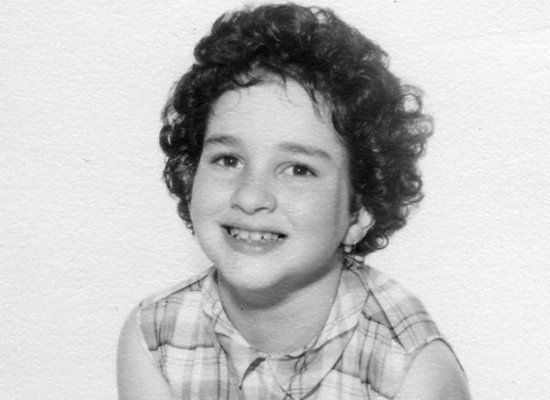If you think having six out of nine Justices being of one religious sect isn't significant, take a minute to think about it again. I wouldn't care if it were six Baptists, six Mormons, or six atheists, I believe it would be best for the justices to be diversified in religious practices, gender, ethnicity, etc. Frankly, I wasn't particularly impressed with the choices that Obama was rumored to be considering.
http://www.msnbc.msn.com/id/30974345/
On Sotomayor, abortion backers show unease
Supreme Court pick may not be a reliable vote to uphold Roe v. Wade
WASHINGTON - In nearly 11 years as a federal appeals court judge, President Obama’s choice for the Supreme Court, Sonia Sotomayor, has never directly ruled on whether the Constitution protects a woman’s right to an abortion. But when she has written opinions that touched tangentially on abortion disputes, she has reached outcomes in some cases that were favorable to abortion opponents.
Now, some abortion rights advocates are quietly expressing unease that Judge Sotomayor may not be a reliable vote to uphold Roe v. Wade, the landmark 1973 abortion rights decision. In a letter, Nancy Keenan, president of Naral Pro-Choice America, urged supporters to press senators to demand that Judge Sotomayor reveal her views on privacy rights before any confirmation vote.
“Discussion about Roe v. Wade will — and must — be part of this nomination process,” Ms. Keenan wrote. “As you know, choice hangs in the balance on the Supreme Court as the last two major choice-related cases were decided by a 5-to-4 margin.”
Because Judge Sotomayor is the choice of a president who supports abortion rights at a time when Democrats hold a substantial majority in the Senate, both sides in the debate have tended to assume she could be counted on to preserve the Roe decision.
Immediately after Mr. Obama announced his selection on Tuesday, leaders of several other abortion rights groups spoke out in support of Judge Sotomayor, and several conservative groups opposed to abortion rights attacked her, saying they were convinced that the president would not nominate someone who opposed abortion rights.
But in his briefing to reporters on Tuesday, the White House spokesman, Robert Gibbs, was asked whether Mr. Obama had asked Judge Sotomayor about abortion or privacy rights. Mr. Gibbs replied that Mr. Obama “did not ask that specifically.”
Previous miscalculations
Presidents have miscalculated in their assumptions about the abortion views of Supreme Court nominees before. When the first President Bush nominated David H. Souter in 1990 to fill the seat that Judge Sotomayor would assume if confirmed, Mr. Souter was known as a “stealth nominee” with no paper trail on abortion.
But conservative and liberal advocates alike believed that Justice Souter would vote to overturn Roe v. Wade, so much so that abortion rights advocates protested outside his confirmation hearing with signs reading “Stop Souter, or Women Will Die.” Then, two years later, Justice Souter shocked the political world by voting to uphold abortion rights.
As president, Mr. Obama has sought to avoid being drawn into the culture wars of the last several decades and has encouraged each side in the abortion debate to be respectful of the other’s opinions. But there are clear political advantages to his choice for the court not being perceived as having a strong position on abortion rights.
Judge Sotomayor’s views on abortion rights could still become clear if a past writing comes to light. During Justice Samuel A. Alito Jr.’s confirmation process in late 2005, for example, the National Archives released an old Justice Department job application in which he said the Constitution does not protect a right to an abortion.
But at this point, Judge Sotomayor’s views are as unknown as Justice Souter’s were in 1990, said Steven Waldman, the editor in chief of BeliefNet.com, a religious Web site, where he has blogged about her lack of an abortion rights record.
“Everyone is just assuming that because Obama appointed her, she must be a die-hard pro-choice activist,” Mr. Waldman said, “but it’s really quite amazing how little we know about her views on abortion.”
None of the cases in Judge Sotomayor’s record dealt directly with the legal theory underlying Roe v. Wade — that the Constitution contains an unwritten right to privacy in reproductive decisions as a matter of so-called substantive due process. Several of her opinions invoke substantive due process in other areas, however, like the rights of parents and prisoners.
Sonia Sotomayor biography
Name: Sonia Sotomayor
Age-Birthdate-Location: 54; June 25, 1954; New York, N.Y.
Experience: Judge, U. S. Court of Appeals for the Second Circuit, 1998-present; judge, U. S. District Court Southern District of New York, 1992-1998; private practice, New York City, 1984-1992; assistant district attorney, New York County, 1979-1984
Education: B.A., Princeton University, 1976; J.D., Yale Law School, 1979.
Quote: "I don't believe we should bend the Constitution under any circumstance. It says what it says. We should do honor to it." — during a 1997 nomination hearing.
She has also had several cases involving abortion-related disputes that turned on other legal issues. While those cases cannot be taken as a proxy for her views on the constitutionality of abortion, she often reached results favorable to abortion opponents.
In a 2002 case, she wrote an opinion upholding the Bush administration policy of withholding aid from international groups that provide or promote abortion services overseas.
“The Supreme Court has made clear that the government is free to favor the anti-abortion position over the pro-choice position,” she wrote, “and can do so with public funds.”
In a 2004 case, she largely sided with some anti-abortion protesters who wanted to sue some police officers for allegedly violating their constitutional rights by using excessive force to break up demonstrations at an abortion clinic. Judge Sotomayor said the protesters deserved a day in court.





